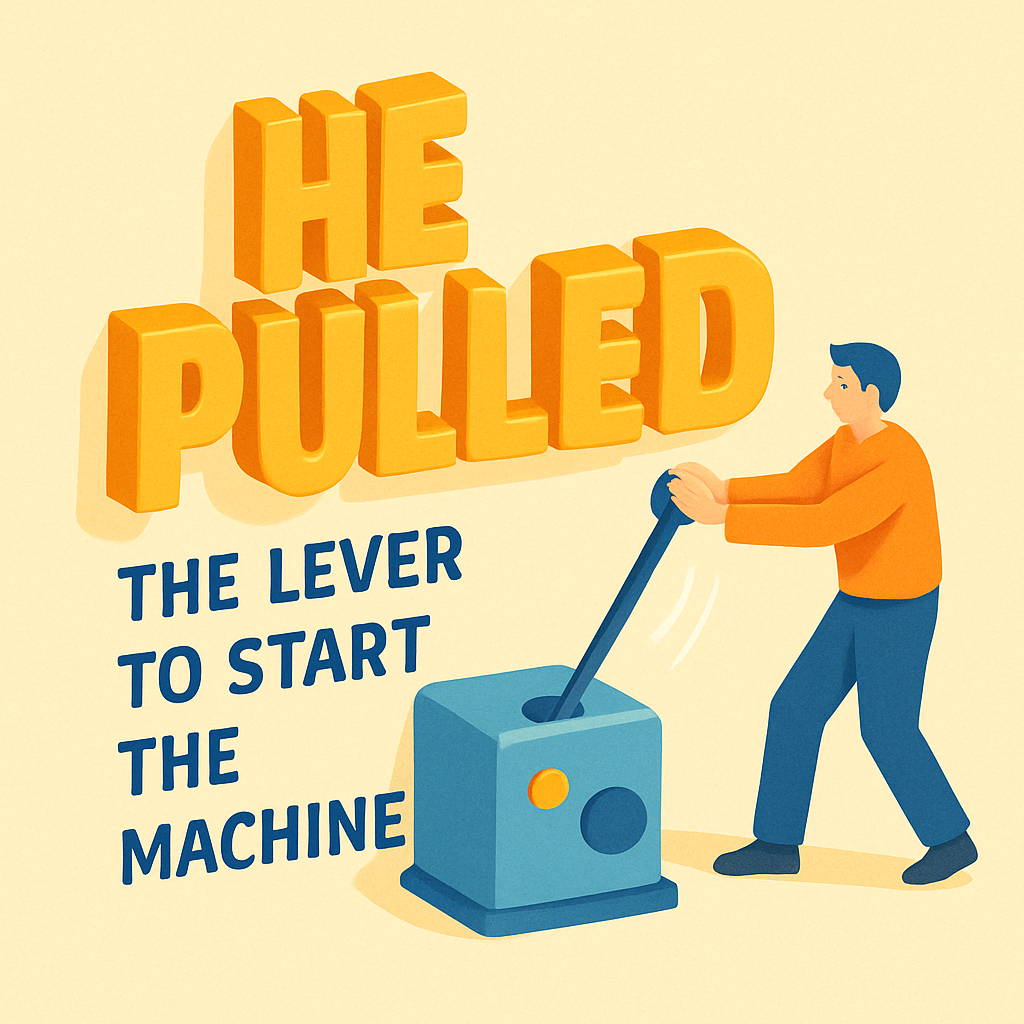Pull
Definition
The term "pull" describes the act of exerting force to move something toward oneself or the direction of the force, or the influence or power to attract or draw interest.
Parts of Speech
- Verb
- Noun
Pronunciation
American English
- IPA Pronunciation: /pʊl/
- Respelling: PUHL
British English
- IPA Pronunciation: /pʊl/
- Respelling: PUHL
Etymology
The word "pull" originates from the Old English "pullian," meaning "to pluck or draw," of uncertain origin but possibly related to Low German "pullen," meaning "to pull or pluck."
Derivatives
- Pulled (verb, past tense)
- Pulling (verb, present participle)
- Puller (noun)
- Pull-up (noun)
- Repull (verb)
Synonyms
- Drag
- Tug
- Haul
Antonyms
- Push
- Repel
- Release
Usage
The term "pull" is used in physical, metaphorical, and idiomatic contexts. For example: "She pulled the rope to lift the bucket," or "He has a strong pull in the local community."
Related Terms
- Force: A push or pull exerted on an object.
- Attraction: The act or power of drawing something closer.
- Drag: To pull something along a surface.
Detailed Definitions
Verb
- To exert force to move something toward oneself: Refers to drawing an object closer by physical effort.
- Example: "He pulled the lever to start the machine."
- To remove or extract by drawing: Refers to taking something out of its place.
- Example: "She pulled the thorn from her finger."
- To attract or draw interest or support: Refers to influencing or compelling attention or involvement.
- Example: "The new exhibit is pulling a large crowd."
Noun
- A force applied to draw something closer: Refers to the act of moving an object by pulling.
- Example: "The rope broke under the strong pull."
- Influence or power to attract: Refers to the capacity to draw attention or interest.
- Example: "His position in the company gives him significant pull."
- A physical motion or effort: Refers to an act of pulling.
- Example: "With one strong pull, the boat moved closer to shore."
pull



🇨🇳 Mandarin
- 拉 (Pull as in drawing or dragging towards oneself): Lā
- IPA Pronunciation: /la˥/
- Respelling in English: Laa
- 牵引 (Pull as in causing to follow by applying steady force on): Qiānyǐn
- IPA Pronunciation: /tɕʰjɛn˥˩ jin˥˥/
- Respelling in English: Chyen-yin
🇮🇳 Hindi
- खींचना (Pull as in drawing or dragging towards oneself): Khīnchanā
- IPA Pronunciation: /kʰiːntʃnɑː/
- Respelling in English: Kheen-ch-naa
- तनना (Pull as in to strain or stretch): Tananā
- IPA Pronunciation: /tənənaː/
- Respelling in English: Ta-na-naa
🇪🇸 Spanish
- Tirar (Pull as in drawing or dragging towards oneself)
- IPA Pronunciation: /tiˈɾaɾ/
- Respelling in English: Tee-rar
- Estirar (Pull as in to strain or stretch)
- IPA Pronunciation: /es.tiˈɾaɾ/
- Respelling in English: Es-tee-rar
🇫🇷 French
- Tirer (Pull as in drawing or dragging towards oneself)
- IPA Pronunciation: /tiʁe/
- Respelling in English: Tee-re
- Étirer (Pull as in to strain or stretch)
- IPA Pronunciation: /e.ti.ʁe/
- Respelling in English: Eh-tee-re
🇸🇦 Modern Standard Arabic
- سحب (Pull as in drawing or dragging towards oneself): Suhub
- IPA Pronunciation: /sɑħb/
- Respelling in English: Sahb
- شد (Pull as in to strain or stretch): Shadd
- IPA Pronunciation: /ʃæd/
- Respelling in English: Shad
🇧🇩 Bengali
- টান (Pull as in drawing or dragging towards oneself): Ṭān
- IPA Pronunciation: /ʈan/
- Respelling in English: Tan
- প্রসারিত করা (Pull as in to strain or stretch): Prasārit kara
- IPA Pronunciation: /proʃarɪt kɔra/
- Respelling in English: Prosharit kora
🇷🇺 Russian
- Тянуть (Pull as in drawing or dragging towards oneself): Tyanut'
- IPA Pronunciation: /tʲɪˈnutʲ/
- Respelling in English: Tee-noot
- Растягивать (Pull as in to strain or stretch): Rastyagivat'
- IPA Pronunciation: /rəstʲɪˈɡʲivətʲ/
- Respelling in English: Ra-stee-gee-vat
🇵🇹 Portuguese
- Puxar (Pull as in drawing or dragging towards oneself)
- IPA Pronunciation: /puˈʃaɾ/
- Respelling in English: Poo-shar
- Esticar (Pull as in to strain or stretch)
- IPA Pronunciation: /eʃˈti.kaɾ/
- Respelling in English: Eh-stee-kar
🇮🇩 Indonesian
- Menarik (Pull as in drawing or dragging towards oneself)
- IPA Pronunciation: /məˈnarik/
- Respelling in English: Me-na-reek
- Meregangkan (Pull as in to strain or stretch)
- IPA Pronunciation: /mərə'gaŋkan/
- Respelling in English: Me-re-gang-kan
🇩🇪 German
- Ziehen (Pull as in drawing or dragging towards oneself)
- IPA Pronunciation: /ˈtsiːən/
- Respelling in English: Zee-en
- Dehnen (Pull as in to strain or stretch)
- IPA Pronunciation: /ˈdeːnən/
- Respelling in English: Deh-nen
🇯🇵 Japanese
- 引く (Pull as in drawing or dragging towards oneself): Hiku
- IPA Pronunciation: /çikɯ̟β/
- Respelling in English: Hik-u
- 引っ張る (Pull as in to strain or stretch): Hippa-ru
- IPA Pronunciation: /hip̚paɾɯ̟β/
- Respelling in English: Hip-pa-ru
🇻🇳 Vietnamese
- Kéo (Pull as in drawing or dragging towards oneself)
- IPA Pronunciation: /kɛw˧˧/
- Respelling in English: Keo
- Căng (Pull as in to strain or stretch)
- IPA Pronunciation: /kəːŋ˧˧/
- Respelling in English: Kang
🇰🇷 Korean
- 당기다 (Pull as in drawing or dragging towards oneself): Danggida
- IPA Pronunciation: /taŋ.gi.da/
- Respelling in English: Tang-gi-da
- 늘이다 (Pull as in to strain or stretch): Neurida
- IPA Pronunciation: /nɯː.ri.da/
- Respelling in English: Neu-ri-da
🇹🇷 Turkish
- Çekmek (Pull as in drawing or dragging towards oneself)
- IPA Pronunciation: /tʃekmek/
- Respelling in English: Chek-mek
- Germek (Pull as in to strain or stretch)
- IPA Pronunciation: /ɟeɾmek/
- Respelling in English: Ger-mek
Pull
Definition
The term pull primarily refers to the act of exerting force on an object so as to cause or tend to cause motion toward the source of the force.
Parts of Speech
"Pull" can be used as a verb and a noun.
Pronunciation
- IPA Pronunciation: American /pʊl/, British /pʊl/
- Respelling: American (pool), British (pool)
Etymology
The word "pull" has been derived from the Old English "pullian," which means 'to pluck or pull at' (especially wool or flax), 'pull off, peel.' Its usage can be traced back to the Proto-Germanic "*pulljanan."
Derivatives
- Puller
- Pulling
- Pulled
- Pullout
- Pullback
Synonyms and Antonyms
Synonyms
- Draw
- Drag
- Haul
Antonyms
- Push
- Repel
- Shove
Usage and Related Terms
Usage:
- She had to pull the door to open it.
- The car's engine has a lot of pull.
Related terms:
- Pull together
- Pull off
- Pull up
Detailed Definition
As a verb, "pull" can mean:
- To exert force upon so as to cause or tend to cause motion toward the force.
- To attract interest, attention, or emotion.
As a noun, "pull" can mean:
- The act or an instance of pulling.
- A force that tends to draw or attract.
Example:
- He pulled the door open.
- The pull of the concert was too great to resist.
- With one final pull, the cork was out.
- Gravity is a pull that keeps us on the ground.
🇵🇰 Urdu
- کھینچنا (Pull as in drawing or dragging towards oneself): Kheenchana
- IPA Pronunciation: /kʰiːntʃ.naː/
- Respelling in English: Kheen-ch-naa
- تاننا (Pull as in to strain or stretch): Taan-na
- IPA Pronunciation: /tɑːn.naː/
- Respelling in English: Taan-na





